1) Neovim
Neovim is a highly customizable, extensible, and feature-rich IDE that has gained popularity among developers and power users for its efficiency, speed, and versatility.
It is an evolved fork of the venerable Vim (Vi IMproved), designed to address some of Vim's limitations and to provide a modern, community-driven development environment for text editing and coding tasks.
2) Pulsar
Pulsar is a community-led, hyper-hackable text editor forked from Atom and built on Electron. It is designed to be deeply customizable, but still approachable using the default configuration, and also cross-platform editor that works on Windows, macOS, and Linux.
It has a built-in package manager that allows users to search and install new packages or create their own right from the editor. Pulsar also has a smart autocomplete feature that helps users write code faster.
3) KDevelop
KDevelop is a free and open-source IDE for Unix-like, Windows, and macOS operating systems. It provides editing, navigation, and debugging features for several programming languages, and integration with build automation and version-control systems, using a plugin-based architecture.
And also KDevelop is a good choice for developers who are looking for a powerful and versatile IDE that is still easy to use. It is especially well-suited for C and C++ development, but it also supports other languages such as Python, QML/JavaScript, PHP, Ruby and Rust.
4) VS Codium
VSCodium is a community-driven, freely-licensed binary distribution of Microsoft's Visual Studio Code editor. It is identical to VS Code in terms of features and functionality, but it removes all Microsoft branding, telemetry, and licensing restrictions. This makes VSCodium a good choice for users who want to use a code editor without any data being collected or shared, or who prefer to use open source software.
5) Geany
Geany is a free and open-source lightweight text editor using Scintilla and GTK, including basic IDE features. It is designed to have short load times, with limited dependency on separate packages or external libraries on Linux.
In contrast to traditional Unix-based editors like Emacs or Vim, Geany more closely resembles programming editors common on Microsoft Windows such as Notepad++, which also uses Scintilla. It is free software licensed under the terms of the GNU GPL version 2 or later.
Thanks for reading the article!
My GNU/Linux distribution under development: https://github.com/AnthosLinux/

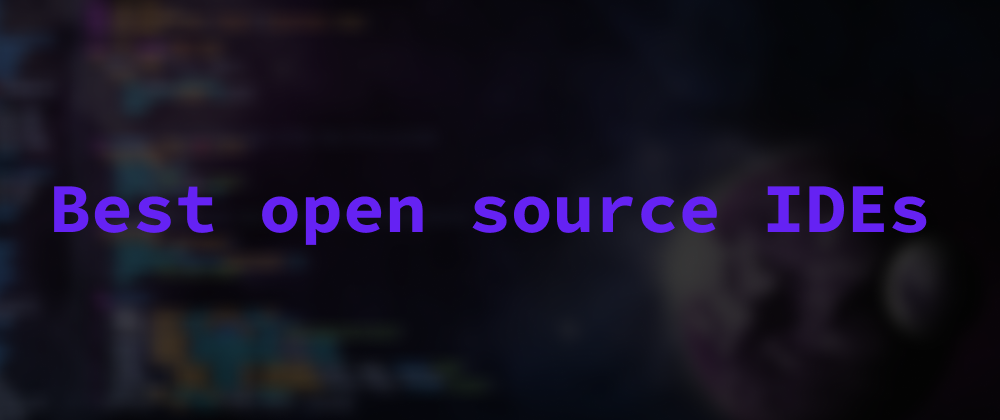
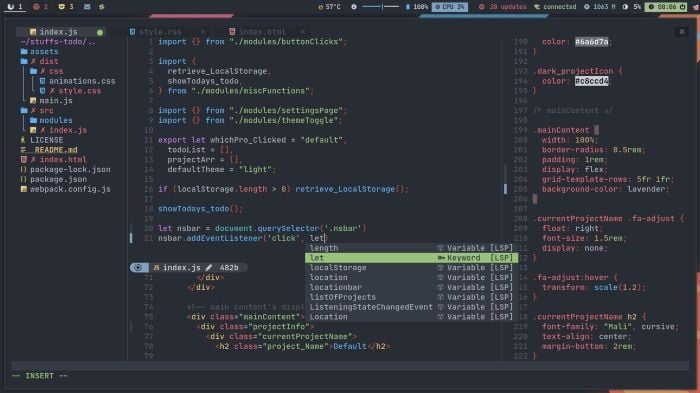
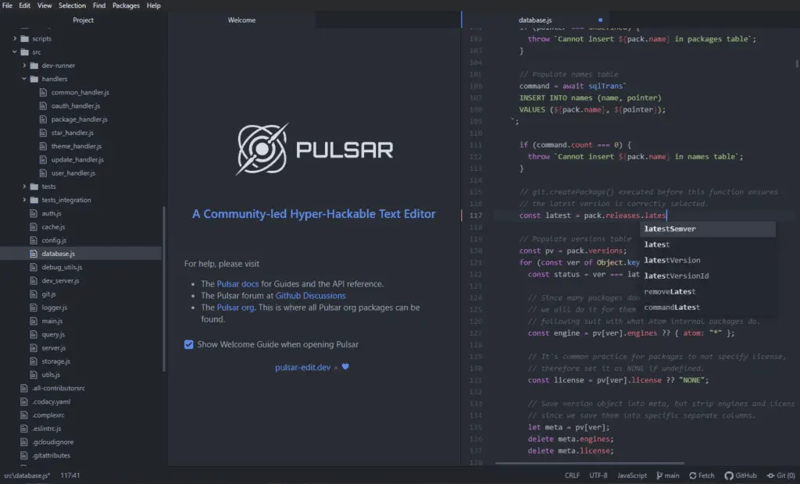
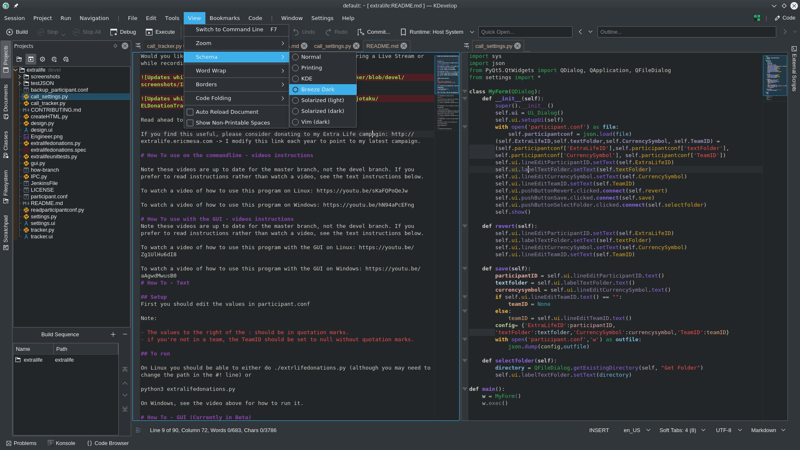
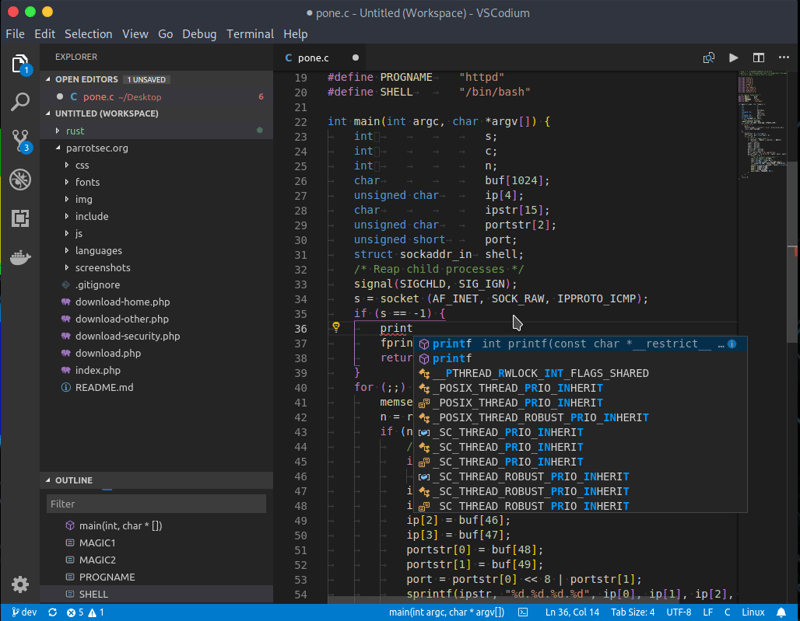
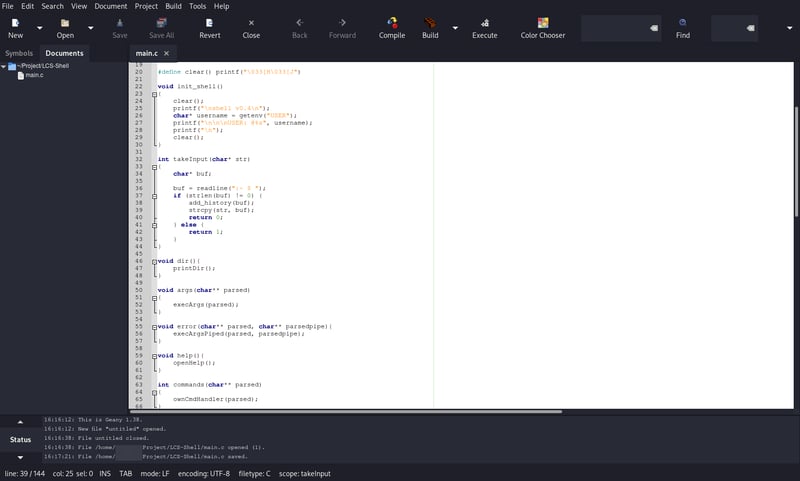





Top comments (34)
Neovim <3
In neovim we trust
Quite interesting why was omitted Eclipse.
NetBeans may also be included in this list. When I used Eclipse and NetBeans a few years ago, I found them much slower than all other IDEs. Plus, the main focus of these IDEs was Java, and C/C++, so other editors were richer for other languages. I don't know how much they are competitive against the new IDEs now.
Although NetBeans and Eclipse have support for many languages that you mentioned since almost 1.5 to 2 decades, there weren't many and good packages for those other languages and their SDKs, libraries, frameworks; those packages were mostly in early development phase, like Alpha and Beta versions.
Probably. I saw mention of Rails for Ruby, but that's it. Both these IDEs focus mostly on Java and C/C++ and are very good for them.
Neovim
You didn't mention the best IDE tool. Visual studio code.
Nope, vs code is not the best IDE :/
Who said that, and why? I appreciate your opinion, but remember it's just your view. Please, let's show respect for this great platform and avoid sharing nonsense articles. It makes the platform look bad.
I think you're taking their opinion too personally. They're sharing their opinion that VSCode isn't the best IDE, it's not that serious.
Devin, it's not personal. I have been developing for over 20 years, and I feel that it is not responsible to create these articles and make these statements. All these "10 best," "5 best," etc., articles are fundamentally flawed. The choice of the best IDE really depends on what you do and which programming language you use. Some IDEs provide better support for certain libraries and languages, while others do not.
I hold a deep appreciation for DEV.IO, and I want to maintain a high level of quality. Additionally, I aim to prevent confusion among young developers.
Recently, I read an article that a young developer posted with the headline "Best 5 technologies for developers." Surprisingly, the article primarily discussed programming languages. Firstly, programming languages are not technologies, and there is no such thing as "the best language." It all depends on the specific project you are working on. For instance, C++ may be more suitable than Python or vice versa, depending on your development needs
The official VSCode releases aren't actually open source. You can read up on the why and the how in the following official resources:
It's not quite open source, what with the Microsoft telemetry and such.
For Mac users an interesting option is zed.dev.
I personally use it together with vs code - depending on the things I like to do.
On top of being unnecessarily mac-only, zed is not really open source.
I'd say it's worth installing. I tried it and it's pretty compact and simple, but isn't much of an IDE. Windows or Linux developers might not be able to use it though.
Where's Emacs? 😱
Probably 6th place 😆
It's a great OS, it just lacks a good editor.
he's dead Jim
We do have Geany on the list though, so that's not the best argument ;)
This is a pretty good list. I’d also throw terminal-based editors in. Helix is a good one for folks to watch. I’ve been using it a bunch lately, and it’s pretty neat.
Neovim is a terminal-based editor. Regardless, I'm glad you mentioned helix. Sort of a vim rewrite but in rust.
And for some reason I won't ever understand, with keybindings almost like vim but not really ;)
None of the programs you mentioned are IDEs as such (except KDevelop), but code editors on steroids.
Anyway, good compilation and undoubtedly the best is VSCode, in terms of quality-simplicity of use and configuration.
+1 for Geany. Folks switching from Notepad++ may find it more familiar than some of the others options.
It is very interesting
No love for GNOME Builder ? I suppose it isn't the best at general applications but it's really good for writing GNOME desktop applications and building to flatpak.
Isn't IDEA also open source?
Aehhmm.. Emacs? :D
If neovim configuration is off-putting I would recommend lunarvim (or nvchad I guess) because they do a lot of the config for you